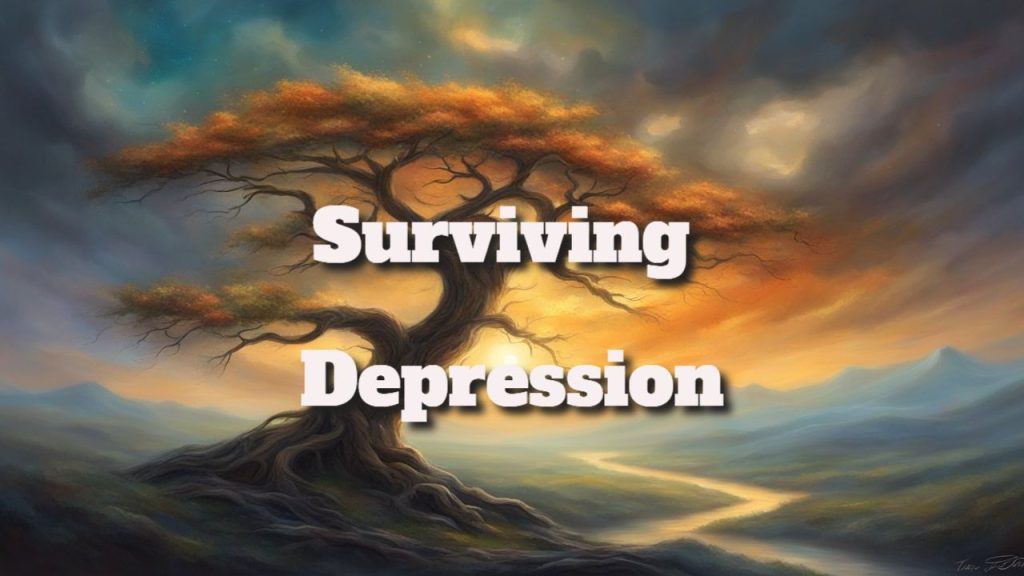Transform Your Life: Proactive Strategies for Overcoming Depression and Fostering Recovery
Depression is a prevalent yet critical mental health disorder, characterized by persistent feelings of sadness, loss, or frustration that severely disrupt everyday activities. Unlike fleeting emotions of sadness, depression is a multifaceted condition that can significantly alter an individual’s mood, thought processes, physical health, and behavioral patterns. It’s essential to understand that experiencing depression is not a sign of weakness, nor can it be swiftly overcome through mere willpower. Effective recovery often requires a comprehensive treatment plan that includes therapy, medications, lifestyle changes, and a supportive network to build resilience against this challenging condition.
Successfully managing depression involves recognizing its complex nature and understanding that recovery is a continual journey rather than an instant solution. Engaging in regular physical exercise has been scientifically shown to enhance mood and elevate self-esteem, as the body naturally releases endogenous opioids during physical activity, which act as natural mood lifters. Furthermore, cultivating social relationships is crucial since feelings of isolation can exacerbate depressive symptoms. Connecting with others, sharing personal experiences, and receiving emotional support from friends and family can provide essential relief. Additionally, incorporating mindfulness practices and other coping mechanisms can effectively help alleviate daily pressures and counteract negative thought loops.
Those struggling with depression may often feel overwhelmed by their circumstances, yet countless individuals have successfully navigated their way through these challenges with appropriate support and self-care strategies. Various healthcare services, including the NHS, offer vital resources, guidance, and supportive communities that play a pivotal role in managing depression. It’s increasingly recognized that experiencing depressive symptoms can be a natural response to life’s pressures and adversities, underscoring the body’s innate desire to cope with difficulties. Embracing this understanding can foster a more compassionate self-view and set the stage for personalized treatment options and effective coping techniques.
Gain a Comprehensive Understanding of Depression’s Impact
Depression is a complex mental health issue affecting millions of individuals worldwide, defined by a persistent low mood and a loss of interest in activities that once brought joy. This condition can present itself in various forms and degrees of severity, often leading to significant impairments in daily functioning and overall quality of life. To effectively manage depression and work toward recovery, it is vital to understand its various nuances and implications on both an emotional and physical level.
Unpacking the Definition and Characteristics of Depression
Depression encompasses far more than sporadic episodes of sadness; it is classified as a mental health disorder that can profoundly affect a person’s emotional state, cognitive abilities, physical health, and daily responsibilities. Healthcare professionals typically diagnose depression when individuals exhibit consistent symptoms for two weeks or more, indicating the need for thorough evaluation and tailored interventions to address their specific needs.
Recognizing Symptoms and the Importance of Diagnosis
Healthcare providers diagnose depression by evaluating a range of specific symptoms, which may include:
- Persistent feelings of sadness, anxiety, or emotional emptiness
- A marked loss of interest or pleasure in activities previously enjoyed
- Chronic feelings of hopelessness and a negative outlook on life
- Increased irritability and agitation
- Chronic fatigue or diminished energy levels
- Difficulty with concentration, memory, or making decisions
- Changes in appetite or significant fluctuations in weight
- Thoughts of self-harm or suicide, or previous attempts
A formal diagnosis involves a detailed evaluation, which may include a physical examination, personal interviews, and psychological assessments to ensure accurate identification and effective treatment planning.
Investigating Common Causes and Risk Factors of Depression
Depression does not stem from a single source; it results from a complex interaction of genetic, biochemical, environmental, and psychological factors. Individual risk factors can vary, but often include:
- A family history of depression or other mental health disorders
- Significant life changes, trauma, or prolonged periods of chronic stress
- Various physical health conditions and the side effects of certain medications
Understanding these risk factors is crucial for early identification and intervention, which can significantly reduce the severity of depressive episodes and improve recovery outcomes.
Developing Practical Coping Mechanisms for Effective Depression Management
To successfully navigate depression, it is crucial to establish a toolkit of practical coping strategies. These strategies are not only essential for maintaining mental health but also serve as a foundation for overcoming daily challenges, thereby facilitating the recovery process.
Building a Resilient Support Network for Emotional Well-Being
Creating and sustaining a strong support system is vital in the recovery journey. Individuals should actively engage with friends and family who provide emotional support, understanding, and encouragement. Additionally, joining support groups or connecting with peers who share similar experiences can offer invaluable insights and motivation during tough times.
Embracing Self-Care as a Fundamental Aspect of Recovery
Prioritizing self-care is crucial for managing depression effectively. Regularly engaging in physical activity not only boosts mood but also enhances overall physical health. Individuals should focus on maintaining a balanced diet, ensuring adequate sleep, and participating in hobbies or activities that promote joy and relaxation. These self-care practices create a nurturing environment that fosters mental resilience and well-being.
Adopting Stress Management Techniques to Alleviate Symptoms
Effectively managing stress is essential for relieving the symptoms of depression. Techniques such as deep breathing exercises, mindfulness practices, and effective time management can help individuals maintain lower stress levels. Moreover, relaxation methods such as yoga and meditation can be beneficial in cultivating a calm mindset and alleviating feelings of anxiety.
Exploring Medical Treatments and Interventions for Depression
Medical approaches to treating depression typically encompass a combination of pharmacological treatments and therapeutic practices. In some cases, alternative treatments may also be explored to enhance the overall effectiveness of the treatment plan.
Understanding the Role of Antidepressant Medications
Antidepressants are commonly prescribed to alleviate the symptoms of moderate to severe depression and should always be managed by a qualified healthcare professional. These medications work by balancing brain chemicals that have a significant impact on mood and emotional states. The selection of an appropriate antidepressant may be tailored to the individual’s unique symptoms, potential side effects, existing medications, and personal preferences. Common categories of antidepressants include:
- Selective Serotonin Reuptake Inhibitors (SSRIs): Often considered the first-line treatment due to their favorable side effect profile.
- Tricyclic Antidepressants (TCAs): Less frequently used because of their more pronounced side effects.
- Serotonin and Norepinephrine Reuptake Inhibitors (SNRIs): An option for individuals who do not respond well to SSRIs.
Patients typically need to take antidepressants for several weeks before experiencing noticeable benefits. Collaborating closely with a healthcare provider is crucial to determine the most suitable medication and dosage tailored to individual needs.
Evaluating Different Therapeutic Options for Depression
A variety of therapeutic modalities are recommended based on the severity of depression and individual circumstances. These therapies aim to assist patients in gaining insights into their condition and developing effective management strategies. Common types of therapy include:
- Cognitive-Behavioural Therapy (CBT): This approach emphasizes identifying and altering negative thought patterns and behaviors that contribute to depressive symptoms.
- Psychodynamic Therapy: This method explores the psychological roots of emotional distress, aiming to uncover underlying issues.
- Interpersonal Therapy (IPT): This therapy focuses on addressing interpersonal conflicts that may be exacerbating depressive symptoms.
- Group Therapy: This format provides a supportive environment where individuals can share experiences and coping strategies with others.
It is essential for individuals to receive the type of therapy that best aligns with their needs, which may range from intensive support to ongoing counseling.
Considering Complementary and Alternative Treatment Approaches
Alongside conventional medical treatments, certain alternative or complementary strategies may provide additional benefits for managing depression:
- Mindfulness and Meditation: Particularly effective for individuals with mild to moderate depression, focusing on present-moment awareness and acceptance.
- Consistent Physical Activity: Regular exercise is well-documented for its positive effects on mood and the alleviation of depressive symptoms.
- Nourishing Diet: Maintaining a healthy, balanced diet is vital for overall well-being, which can indirectly support mental health management.
While alternative treatments can offer valuable support, they should not replace traditional medical therapies but rather complement them. Individuals are encouraged to consult their healthcare providers before initiating any alternative treatment plans.
Implementing Positive Lifestyle Changes to Enhance Recovery
Making specific lifestyle adjustments can significantly benefit individuals struggling with depression. These changes may include improving dietary habits, engaging in regular physical exercise, and cultivating healthy sleep patterns, all contributing positively to mental health.
Enhancing Diet and Nutrition for Optimal Mental Well-Being
A well-rounded diet is crucial for supporting mental health. Individuals should prioritize:
- Complex Carbohydrates: Foods like whole grains release glucose slowly, promoting mood stability and sustained energy levels.
- Omega-3 Fatty Acids: Found in oily fish, flaxseeds, and walnuts, these essential fats are vital for brain health and emotional stability.
- Protein Sources: Incorporating lean meats, fish, eggs, and legumes is essential, as they provide amino acids necessary for neurotransmitter synthesis.
It’s also important to include a wide variety of fruits and vegetables, as they supply essential vitamins and minerals that bolster overall health.
Embracing Regular Exercise to Boost Mental Health
Regular physical activity is fundamental for enhancing mental well-being. Recommendations suggest:
- Consistent Exercise Regimen: Aim for a minimum of 150 minutes of moderate-intensity exercise each week to experience the mental health benefits.
- Incorporating Strength Training: Activities such as weightlifting or yoga at least twice a week can enhance muscle strength and improve mood.
- Sustained Exercise Routines: Establishing a consistent exercise schedule is typically more effective than focusing purely on exercise intensity.
Even short bouts of physical activity can yield positive outcomes, so finding enjoyable ways to stay active can promote adherence to a regular exercise routine.
Improving Sleep Hygiene for Enhanced Mental Health
Quality sleep is essential for maintaining mental health. To enhance sleep hygiene, consider the following:
- Regular Sleep Schedule: Going to bed and waking up at the same time each day helps regulate your body’s internal clock.
- Creating a Peaceful Sleep Environment: Ensure your bedroom is dark, quiet, and conducive to relaxation.
- Limiting Screen Time Before Bed: Reducing exposure to blue light from screens can prevent disruptions in your sleep cycle.
Prioritizing sufficient sleep is vital for mood stability and cognitive function, making it a key factor in effective depression management.
Exploring External Resources and Support Systems for Depression
When confronting depression, it’s essential to understand the variety of external support options available. This includes professional medical assistance, community support networks, and online platforms offering valuable resources and guidance.
Seeking Expert Help for Depression Management
Individuals facing depression should consider pursuing professional help, which often involves consultations with psychologists, psychiatrists, and trained counselors. These professionals can provide accurate diagnoses, various therapy options, and, if necessary, medication.
For individuals in the UK, reaching out to a GP to discuss mental health concerns can lead to referrals for specialized services. Community Mental Health Teams (CMHTs) are also a vital component of the NHS’s support network, providing comprehensive, community-based psychiatric care for those in need.
Participating in Support Groups for Shared Healing
Support groups create a nurturing space for individuals to share experiences and engage in collective healing. Many people find solace in these peer-led groups, where they can openly express themselves and receive empathy from others navigating similar challenges. Organizations like Mind and Samaritans facilitate these supportive groups, ensuring access to safe environments both in-person and through helpline services.
Utilizing Online Resources for Accessible Mental Health Support
Lastly, online resources present a flexible and accessible avenue for mental health support. Numerous reputable websites provide essential information, self-help materials, and connections to therapy services. Organizations such as the Anxiety and Depression Association of America and the UK’s Samaritans offer extensive digital resources tailored to various aspects of mental health, including depression, empowering individuals to seek assistance and resources at their convenience.
Frequently Asked Questions on Managing Depression
Depression is a highly treatable condition, and with appropriate strategies and support, individuals can effectively manage their symptoms and work toward recovery. Below are commonly asked questions that provide further insights into depression and its management.
Is complete recovery from depression possible?
Yes, complete recovery from depression is achievable for many individuals. The timeline and nature of recovery can vary, influenced by personal circumstances, the severity of depression, and the specific treatment approaches employed.
Which coping strategies are effective for managing depressive symptoms?
Effective coping strategies include developing a consistent exercise routine, establishing healthy sleep patterns, and engaging in cognitive behavioral therapy (CBT). Access to professional support and tailored treatment plans is crucial for symptom management and overall recovery.
How can individuals maintain mental well-being after recovering from depression?
To sustain mental well-being after recovery, individuals should continue to implement the coping tools and strategies learned during treatment. Prioritizing physical health, effectively managing stress, and seeking ongoing support can help reinforce recovery and prevent relapse.
What role does therapy play in treating depression?
Therapeutic interventions, including CBT, psychotherapy, or counseling, are critical in managing depression. These approaches help individuals understand their thought and behavior patterns, develop coping strategies, and address the underlying causes of their depressive symptoms.
Do lifestyle changes impact the management of depression?
Absolutely! Lifestyle modifications can profoundly influence the management of depression. Engaging in regular physical activity, maintaining healthy eating habits, and avoiding substances like alcohol and drugs contribute to improved symptoms and overall mental health outcomes.
How can someone effectively support a person dealing with depression?
Supporting someone with depression involves actively listening, offering empathy, and encouraging them to seek professional help. It’s vital to provide support without judgment while also educating oneself about the condition to foster better understanding and assistance.
The post Surviving Depression: Practical Strategies for Coping and Recovery appeared first on Survival Avenue.
The post Surviving Depression: Practical Strategies for Coping and Recovery appeared first on https://gqcentral.co.uk
The Article Surviving Depression: Practical Strategies for Coping and Recovery First Appeared ON
: https://ad4sc.com
The Article Surviving Depression: Practical Strategies for Coping and Recovery was found on https://limitsofstrategy.com



Your insights into the complexities of depression really highlight the importance of a nuanced approach to recovery. I find it particularly compelling how you emphasize that recovery is a journey rather than a destination. In my own experience, understanding this intricacy helped me reshape my expectations around healing.
This is such an important topic that resonates with many of us. I’ve experienced the weight of depression firsthand, and it truly is a complex journey. One thing I’ve found invaluable is the support of community; whether through friends, family, or even online groups, that connection helps remind me that I’m not alone in this struggle. I also appreciate your mention of lifestyle changes, particularly exercise. When I started incorporating even small amounts of physical activity into my routine, I noticed a gradual shift in my mood. It’s remarkable how interconnected our physical and mental health can be. It would be interesting to hear from others about their strategies or any unexpected activities that have helped them on their path to recovery.
It’s so true that community plays a crucial role in navigating the complexities of depression. Having a support system, whether it’s friends, family, or even online groups, can really make a difference in feeling connected and understood. I’ve found that sharing experiences with others who relate can often lift the weight of isolation, which is such a common feeling during tough times.
I recently stumbled upon some acupuncture techniques that could really complement TMS treatment and thought it might resonate with you—it’s fascinating how different approaches can work together on this complex journey.
‘Acupuncture Techniques to Boost TMS Treatment Efficacy’
https://seopitstop.co.uk/acupuncture-techniques-to-boost-tms-treatment-efficacy/.
It’s heartening to see how deeply this topic resonates with you and how you’ve navigated your own experience with depression. The importance of community support cannot be overstated. Human connection creates a sense of belonging that often serves as a foundation for healing. Whether it’s friends lending an ear or online groups providing a safe space for shared experiences, these interactions can create pathways to understanding and comfort when the journey feels isolating.
I really appreciate your thoughts on this. You’re so right about the vital role of community support in managing mental health. When I reflect on my own experiences with depression, it’s often the smaller interactions that have had the biggest impact—like a friend checking in or a casual conversation that makes me feel seen.
Your insights on the complexity of depression resonate deeply with me, particularly the emphasis on it being a multifaceted condition that cannot simply be overcome with willpower. Having walked through my own experiences with depression, I can affirm that understanding its nature has been a crucial part of my journey toward recovery. It’s not just about feeling sad; it often intertwines with anxiety, fatigue, and a profound sense of isolation, which can make everyday activities feel almost insurmountable.
Your insight into the nature of depression brings to light an important aspect that is often overlooked: the complexity of recovery. I appreciate the emphasis on viewing recovery as a journey rather than a destination. This perspective resonates with my personal experience; I’ve often found that embracing small, incremental changes—such as incorporating mindfulness practices or developing a consistent exercise routine—has been transformative in managing my own mental health.